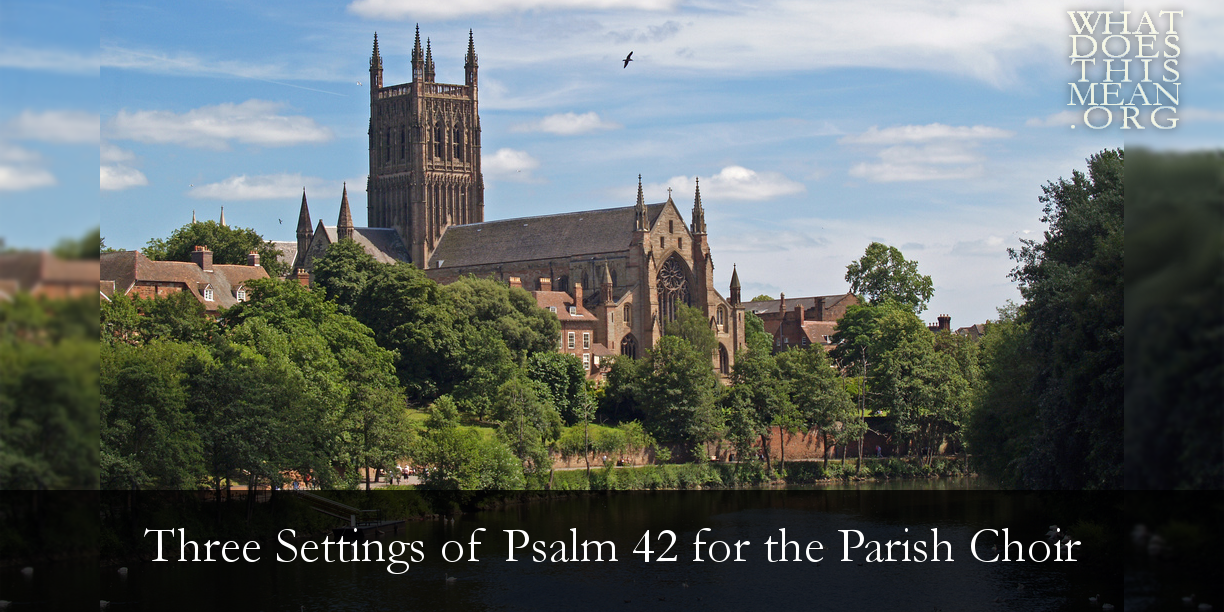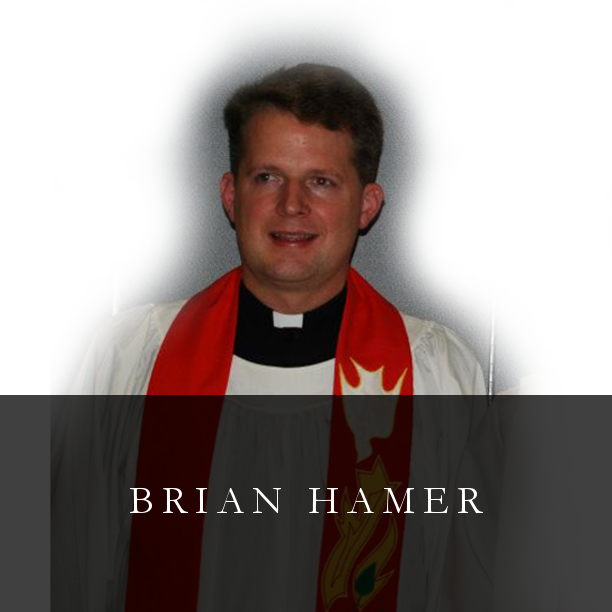| As the deer pants for the water brooks, So pants my soul for You, O God. 2 My soul thirsts for God, for the living God. When shall I come and appear before God? 3 My tears have been my food day and night, While they continually say to me, “Where is your God?” (NKJV) |
| [Psalms describing God’s kingdom] . . . sing of Jerusalem, the City of God, of the great festivals of the people of God, of the temple and the beautiful worship services. It is the presence of the God of salvation in his congregation for which we here give thanks, about which we here rejoice, for which we long. What Mount Zion and the Temple were for the Israelites the church of God throughout the world is for us – the church where God always dwells with his people in word and sacrament. (Psalms: Prayerbook of the Bible, p. 40). |
As you listen to the following performance of what I like to call a “mandatory motet” for every SATB choir, listen for at least three traits: (1) florid melodies in every voice, each one seemingly weaving its way to heaven (2) changes in the music, which follow changes in the text (3) the repeat of verse 1 at the end of the composition, so that the work as a whole ends with the soul longing for the living God and His well of salvation, thereby answering the critics who say in derision, “Where is your God?”
| Sicut cervus desiderat ad fontes aquarum: ita desiderat anima mea ad te, Deus. Sitivit anima mea ad Deum fontem vivum: quando veniam et apparebo ante faciem Dei? Fuerunt mihi lacrymae meae panes die ac nocte, dum dicitur mihi quotidie: Ubi est Deus tuus? (Latin text, Psalm 41:1-3, alt.) | As the hart yearns for the water springs: So long my soul for thee, O God! My soul has thirsted for the living God: When shall I come and appear before his face? My tears have been my bread day and night, While it is said to me daily, “Where is your God?” (English text, Psalm 42:1-3) |
The opening chorus, which is available for keyboard and chorus, should be accessible to the capable parish choir. The form is what I like to call “vintage Mendelssohn”: an opening ritornello, an “A” section for the first line of the Psalm (“As the hart longs after fresh waters”), a “B” section for the second line of the Psalm (“So longs my soul, O God, after Thee”), a combination of those two themes, and a closing orchestral ritornello. The following performance features the famous boy choir of St. Thomas Leipzig, where J. S. Bach — whose music Mendelssohn revived in the 1820’s — served as Kantor from 1723 until his death in 1750.
| Wie der Hirsch schreit nach frischem Wasser, So schreit meine Seele, Gott, zu Dir. | As the hart longs after the fresh waters, So longs my soul, O God, after Thee. (v. 1) |
| Like as the hart desireth the waterbrooks, so longeth my soul after thee, O God. My soul is athirst for God, yea, even for the living God. When shall I come to appear before the presence of God? My tears have been my meat day and night, while they daily say unto me, “Where, where is now thy God?” (vss. 1-3) |
This is all well and good. But there is one other use in the history of the western liturgy that highlights the Christology of Psalm 42. The first verse of Psalm 42 is historically sung for the blessing of the baptismal font on Holy Saturday. The use of the phrase fontes aquarium (water springs) in the Latin text (see the text for the Palestrina setting above) was no doubt influential in this ancient use of Psalm 42:1 to bless the font of water at the Great Vigil of Easter.
Even more profound than the surface-level grammatical connection, however, is the intrinsic Christology of the Psalm. Believers living in the the New Testament must not hesitate to apply the Psalms to the means of grace (including, but not limited to Baptism) as we answer the question, “Where is your God?” God is present for us in Christ, from whose pierced side once flowed water to proclaim His death. And now, in the wake of His resurrection, those waters have pooled in the baptismal font, where the risen Christ grants us the washing of rebirth and renewal by the Holy Spirit. So those who believe in Him, as the Scripture has said, draw life-giving water from the wells of salvation. As the hymn puts it:
| See, the streams of living water, springing from eternal love, Well supply your sons and daughters / And all fear of want remove. Who can faint while such a river / Ever will their thirst assuage? Grace, which like the Lord, the giver, Never fails from age to age. |



 RSS Feed
RSS Feed
